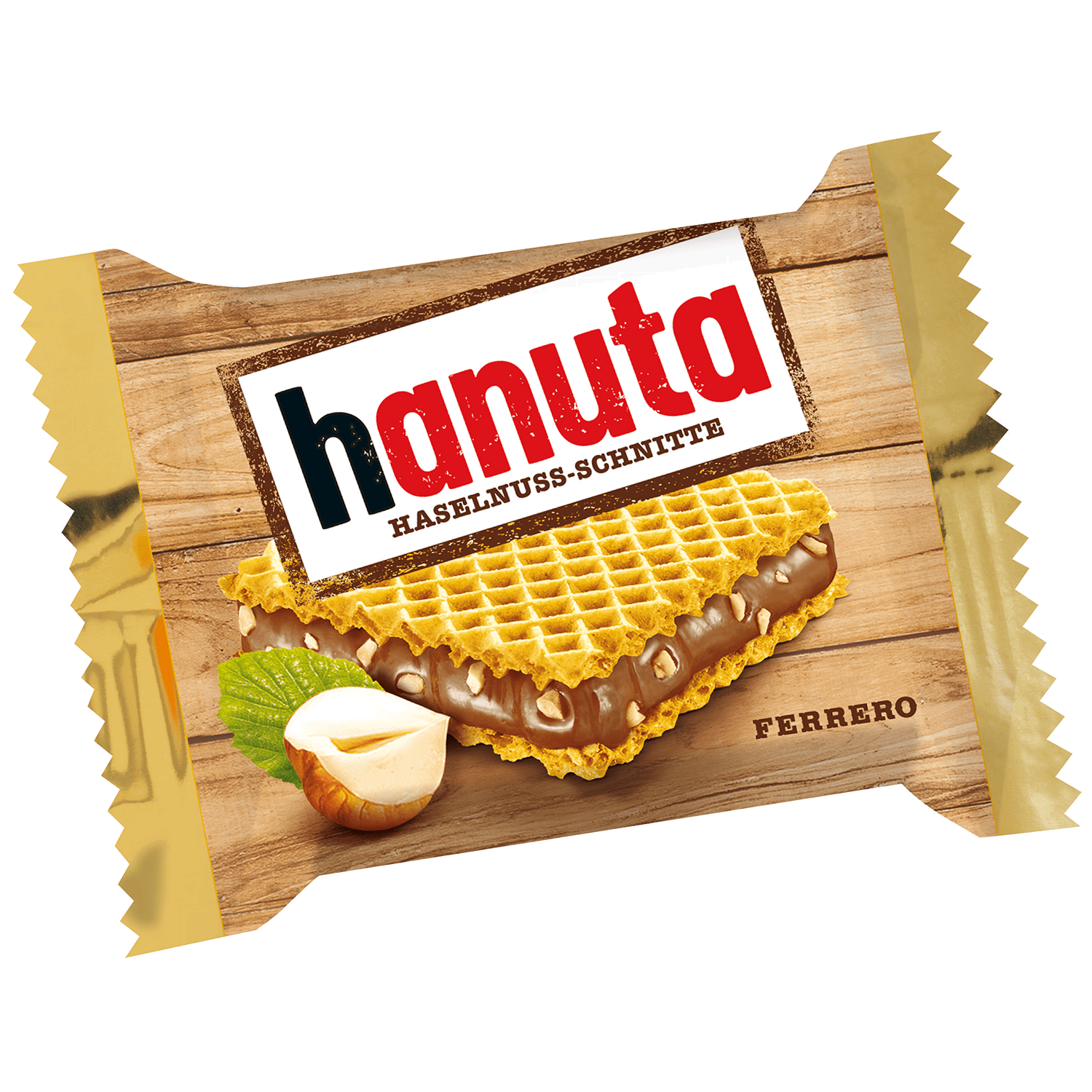Vegan Hanuta: The Ultimate Guide To Embracing A Plant-Based Lifestyle
Let’s talk about vegan hanuta, a term that’s gaining traction in the plant-based world. If you’ve been scrolling through social media or diving into health blogs, chances are you’ve stumbled upon this buzzword. Vegan hanuta isn’t just about food; it’s a lifestyle that’s sweeping across communities worldwide. It’s all about embracing plants, sustainability, and a healthier way of living. Whether you’re a seasoned vegan or just curious about the movement, this guide has got you covered.
Imagine this: you’re sitting at your favorite café, sipping on a matcha latte, and suddenly you hear someone mention “vegan hanuta.” Your ears perk up. What is it? Is it a new diet? A trendy restaurant? Or maybe a lifestyle shift? The truth is, vegan hanuta is all of these things—and more. It’s about reconnecting with nature, fueling your body with nutrient-rich foods, and making choices that align with your values.
Now, here’s the deal: veganism isn’t new. People have been embracing plant-based diets for decades. But what makes vegan hanuta different is its holistic approach. It’s not just about cutting out animal products; it’s about creating a balanced, sustainable, and mindful lifestyle. So, buckle up because we’re diving deep into the world of vegan hanuta, and by the end of this guide, you’ll be ready to make some serious lifestyle changes.
Welcome to the ultimate guide on vegan hanuta. Here’s what we’ll cover:
- What is Vegan Hanuta?
- The History of Vegan Hanuta
- Benefits of Embracing Vegan Hanuta
- The Vegan Hanuta Diet
- Sustainability in Vegan Hanuta
- Building a Vegan Hanuta Community
- Challenges of Living Vegan Hanuta
- Tips for Transitioning to Vegan Hanuta
- Delicious Recipes for Vegan Hanuta
- FAQs About Vegan Hanuta
What is Vegan Hanuta?
Vegan hanuta is more than just a buzzword; it’s a movement that’s reshaping how we think about food, health, and the environment. At its core, it’s about adopting a plant-based lifestyle that prioritizes sustainability, mindfulness, and ethical choices. The term “hanuta” itself comes from ancient roots, symbolizing harmony with nature and balance in life.
So, what makes vegan hanuta unique? Unlike traditional veganism, which focuses solely on eliminating animal products, vegan hanuta takes a broader approach. It encourages individuals to consider the environmental impact of their choices, support local farmers, and embrace seasonal produce. It’s like taking veganism to the next level, where every decision you make aligns with your values.
Why is Vegan Hanuta Gaining Popularity?
Let’s break it down. Here are a few reasons why vegan hanuta is resonating with so many people:
- Sustainability: People are becoming more aware of the environmental impact of their food choices. Vegan hanuta offers a way to reduce your carbon footprint while still enjoying delicious meals.
- Health Benefits: A plant-based diet has been linked to lower risks of heart disease, diabetes, and certain cancers. Vegan hanuta takes this a step further by emphasizing nutrient-dense foods.
- Ethical Considerations: Many individuals are drawn to vegan hanuta because of its focus on animal welfare and ethical consumption.
The History of Vegan Hanuta
To truly understand vegan hanuta, we need to look back at its origins. The concept has deep roots in ancient cultures that prioritized harmony with nature. Over time, it evolved into the movement we see today, blending traditional wisdom with modern science.
Here’s a quick timeline:
- 2000s: The rise of veganism as a mainstream lifestyle.
- 2010s: Increased focus on sustainability and ethical consumption.
- 2020s: The emergence of vegan hanuta as a holistic approach to plant-based living.
Key Influencers in Vegan Hanuta
Several thought leaders have played a crucial role in shaping the vegan hanuta movement. Names like Dr. Jane Goodall and Chef Matthew Kenney have brought attention to the importance of sustainable, plant-based living. Their work continues to inspire millions around the globe.
Benefits of Embracing Vegan Hanuta
Switching to a vegan hanuta lifestyle comes with a ton of benefits. From improving your health to reducing your environmental impact, there’s something for everyone. Let’s dive into the top advantages:
- Improved Health: A well-planned vegan hanuta diet can provide all the nutrients your body needs while reducing the risk of chronic diseases.
- Environmental Impact: By choosing plant-based foods, you’re helping to reduce greenhouse gas emissions and conserve water.
- Animal Welfare: Vegan hanuta emphasizes compassion and respect for all living beings.
Long-Term Benefits
While the immediate benefits are impressive, the long-term impact of vegan hanuta is even more significant. Studies show that individuals who maintain a plant-based lifestyle tend to live longer, healthier lives. Plus, they contribute to a more sustainable future for generations to come.
The Vegan Hanuta Diet
Now, let’s talk about the food. What does a typical vegan hanuta diet look like? It’s all about variety, balance, and nutrient density. Think whole grains, fresh produce, legumes, and nuts. Here’s a breakdown of the key components:
- Fruits and Vegetables: Load up on colorful produce to get a wide range of vitamins and minerals.
- Whole Grains: Opt for brown rice, quinoa, and oats to fuel your body with complex carbs.
- Protein Sources: Lentils, chickpeas, and tofu are just a few examples of plant-based protein powerhouses.
Meal Planning Tips
Meal planning is key to success when adopting a vegan hanuta diet. Here are a few tips to keep in mind:
- Plan your meals for the week to save time and reduce waste.
- Experiment with new recipes to keep things exciting.
- Stock up on pantry staples like beans, grains, and spices.
Sustainability in Vegan Hanuta
Sustainability is at the heart of vegan hanuta. It’s about making choices that benefit both you and the planet. From reducing food waste to supporting local farmers, every small action counts. Here’s how you can incorporate sustainability into your daily life:
- Buy Local: Choose produce from nearby farms to reduce transportation emissions.
- Reduce Waste: Use every part of your ingredients and compost any scraps.
- Reuse and Recycle: Opt for reusable containers and recycle whenever possible.
Why Sustainability Matters
The planet is facing serious challenges, from climate change to deforestation. By embracing sustainable practices, we can help protect the environment for future generations. Vegan hanuta offers a practical way to make a difference without compromising on taste or convenience.
Building a Vegan Hanuta Community
One of the most rewarding aspects of vegan hanuta is the sense of community it fosters. Whether you’re attending a local farmers’ market or joining an online forum, there are endless opportunities to connect with like-minded individuals. Here’s how you can get involved:
- Join Online Groups: Platforms like Facebook and Reddit have vibrant communities dedicated to vegan hanuta.
- Attend Events: Look for workshops, potlucks, and festivals in your area.
- Share Your Journey: Document your progress on social media to inspire others.
Supporting Each Other
Building a strong community is about more than just sharing recipes. It’s about offering support, encouragement, and resources to help everyone succeed. Whether you’re a newbie or a seasoned pro, there’s always something to learn and share.
Challenges of Living Vegan Hanuta
Of course, no lifestyle change is without its challenges. Transitioning to vegan hanuta can be tough, especially if you’re used to a more conventional diet. Here are some common obstacles and how to overcome them:
- Social Pressure: Educate your friends and family about the benefits of vegan hanuta.
- Convenience: Plan ahead and prepare meals in advance to save time.
- Nutrition: Consult a dietitian to ensure you’re getting all the nutrients you need.
Staying Motivated
Staying motivated is key to long-term success. Set small, achievable goals and celebrate your progress along the way. Remember, every step you take is a step toward a healthier, more sustainable future.
Tips for Transitioning to Vegan Hanuta
Ready to make the switch? Here are some practical tips to help you transition smoothly:
- Start by incorporating more plant-based meals into your diet.
- Explore new ingredients and flavors to keep things interesting.
- Seek out recipes and resources to guide you through the process.
Common Mistakes to Avoid
Transitioning to vegan hanuta can be overwhelming, but avoiding these common pitfalls can make it much easier:
- Don’t cut out entire food groups without proper planning.
- Avoid relying too heavily on processed vegan foods.
- Stay informed about nutrition to ensure a balanced diet.
Delicious Recipes for Vegan Hanuta
Let’s talk food! Here are a few mouthwatering recipes to get you started:
1. Quinoa and Black Bean Bowl
This hearty dish is packed with protein and flavor. Simply cook quinoa according to package instructions, mix in black beans, and top with fresh veggies and a drizzle of tahini sauce.
2. Vegan Hanuta Smoothie
Blend spinach, banana, almond milk, and a scoop of plant-based protein powder for a nutritious breakfast on the go.
3. Lentil Curry
Simmer lentils with coconut milk, turmeric, and your favorite spices for a comforting and flavorful meal.
FAQs About Vegan Hanuta
Still have questions? Here are some common queries about vegan hanuta:
1. Is Vegan Hanuta Expensive?
Not necessarily. While some specialty items can be pricey, staples like beans, rice, and vegetables are often affordable.
2. Can I Get Enough Protein?
Absolutely! Plant-based proteins like lentils, tofu, and quinoa are excellent sources of protein.
3. Is Vegan Hanuta Suitable for Everyone?
Yes, with proper planning. Consult a healthcare professional if you have specific dietary needs.
That’s a wrap, folks! Whether you’re ready to dive headfirst into vegan hanuta or just want to explore it further, this guide has given you everything you need to get started. Remember, every small change you make can have a big impact. So, what are you waiting for? Share this article with your friends, leave a comment below, and let’s build a healthier, more sustainable world together!

Vegan Hanuta Zucker&Jagdwurst

Nhà Hàng Chay The Vegan Garden Ho Chi Minh City

Hanuta (22g) SnackVerse